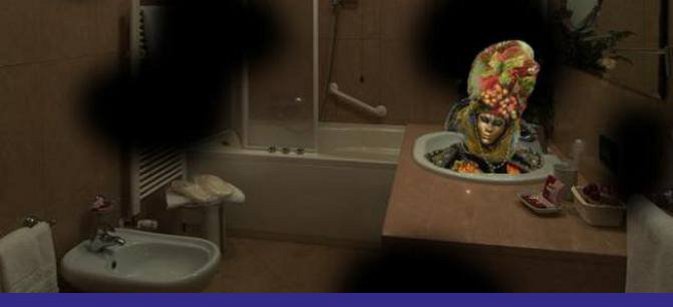When heartburn occasionally strikes, one can turn to antacids to neutralise the acid in the stomach. However, in more severe or persistent cases of heartburn or reflux, there are a group of medications known as Proton Pump Inhibitors (PPIs). Their role is to reduce the amount of acid the stomach produces and are one of the most widely prescribed medications in the world. The function of the PPI is very similar to that of antacids but they are longer acting and target a different mechanism.
There is some preliminary evidence suggesting that those living with macular degeneration may be more likely to develop Charles Bonnet syndrome (CBS) if they are also taking a PPI medication. Such medications includes Omeprazole (eg. Losec, Prisolec, Zegerid), Esomeprazole (Nexium), and Lansoprazole (Prevacid, Zoton).
PPIs are generally considered safe and well tolerated by most users but medications can, and sometimes do, come with side effects. Normally, PPIs are not able to enter the brain (due to the 'blood-brain barrier') and so do not affect the central nervous system. However, two recent studies tend to indicate that damage to the retina in macular degeneration cases offers a unique entry point for such medications. This is where they can potentially affect the brain and increase the likelihood of CBS.
In 2012, there was a case report of a man living with macular degeneration (but CBS-free) who headed to the emergency ward with bleeding of stomach ulcers. Part of the hospital's treatment involved use of a PPI. Post-discharge, while heading home in the taxi, he began to experience vivid phantom images such as 'flowers silently blooming out of the air'. It was only when this drug was discontinued that these visual disturbances began to clear up.
In the following year, a small American study linked PPIs to visual hallucinations in patients living with the wet form of macular degeneration (Hanneken et al, 2013). In some, the CBS only began once the PPI was introduced, whilst in others who already had CBS, their experiences become more significant after PPI use.
Building upon this finding, a team of researchers from Portugal clinically assessed this theory with 471 patients (Leandro et al, 2017). Leandro and his colleagues found that those living with wet macular degeneration were twice as likely to develop CBS symptoms when also taking an oral PPI.
In an excerpt from their paper it states:
"...hallucinations are not cited as a frequent adverse effect of these drugs and Food and Drug Administration (FDA) prescribing information on Omeprazole categorizes (visual) hallucinations as a rare event, occurring in <1% of patients. However, the percentage of patients with wet macular degeneration reporting visual hallucinations while using PPIs was as high as 56% and these drugs may confer a two times greater risk of CBS development." (p.4141)
It is the opinion of the lead author, João Leandro, that patients with the wet form of macular degeneration should be informed that PPIs can increase the risk of visual hallucinations. This finding was found regardless of age and degree of vision loss. However, he cautioned that "we cannot make any specific recommendation because we do not know whether discontinuing these drugs may decrease the frequency of the hallucinations, or even stop them." It is also not yet known whether similar occurrences are likely or indeed possible in eye diseases where there is no retinal damage such as in the case of glaucoma.
Summary
- It needs to be stressed that the above information only applies to macular degeneration and particularly the wet form.
- The Foundation believes this issue warrants public attention but not alarm. Be aware of this possible link and monitor the situation accordingly. Naturally, this should occur with close involvement of your medical practitioner.









